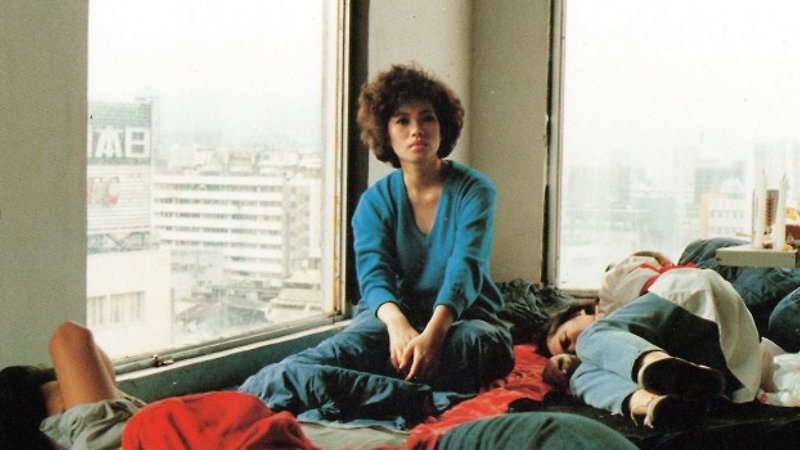A young urban couple, caught between the old and new Taiwans, inexorably drift apart. "A masterpiece... the moods it conjures up are potent and indelible." — Chicago Reader

A masterpiece... the moods it conjures up are potent and indelible.
Screened as part of NZIFF 2008
Taipei Story 1984
Qingmei Zhuma
Taipei Story stars fellow New Wave pioneer and Festival regular Hou Hsiao-hsien as Lon, a former baseball star and one half of a young urban couple inexorably drifting apart. Hou also co-wrote the film and mortgaged his house to finance it. While Lon is continually looking backwards, particularly to his former success, his partner Ah-Chin has bought into the rapidly modernizing, materialist Taipei, embodied by its ominous, empty new office buildings. Their fragmenting personal relationship comes to stand in for the historical and social forces impacting on Taipei in the mid-eighties. Understated, but clear enough, is the role America plays in defining the contradictory dreams and desires of the couple. Despite the big themes lurking just below the surface, Yang’s attention to character and locale is so acute that this subtext never compromises the human element, and the film quietly, obliquely builds to a powerfully tragic climax. — AL
“Yang's artistry took a substantial leap forward with Taipei Story. A greater fluidity of imagery, and an increased facility for relating sound and image, are on display in this film. The central relationship of Lon and Chin, the long-time couple slowly drifting apart, is aptly and intimately connected to the grand changes overtaking Taiwan. Yang returns repeatedly to imagery of highway traffic, cranes, construction, and modern electronic equipment, as if to indicate the close relationship between these processes and the problematic romantic relationship… Chin's sunglasses, seen repeatedly both covering her eyes and posed suggestively in the background of scenes, become indicative of her relationship to the world surrounding her. . . In the film's haunting final sequence, Chin puts on her sunglasses one final time, tuning out her boss/boyfriend's disquisition on the future of corporate life. The glasses reflect the passing cars outside, deftly incorporating the exterior of public life into the private space of the body. Chin's life is a reflection of similar processes changing the face of Taiwan, and it is Yang's graceful mise en scène that communicates the sense that each car contains a story similar to Lon and Chin's, of attempting to navigate the complex, non-linear paths of the modern world” — Saul Austerlitz, SensesOfCinema.com